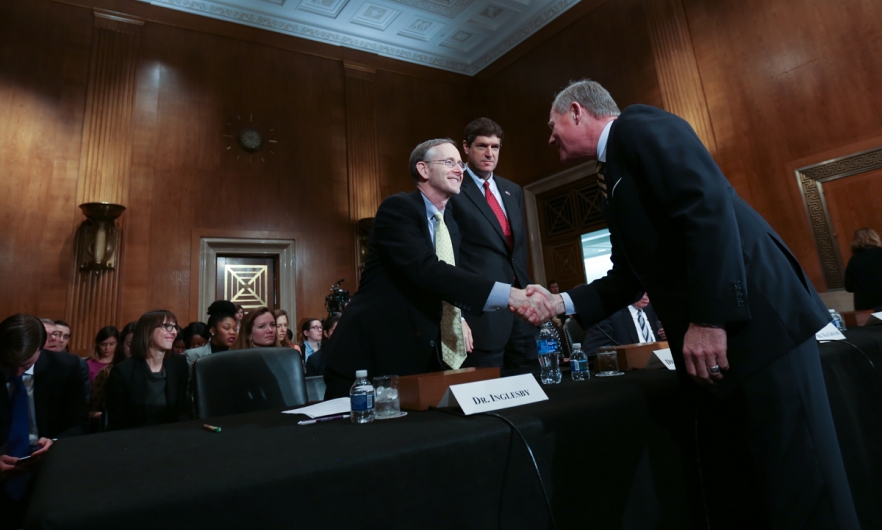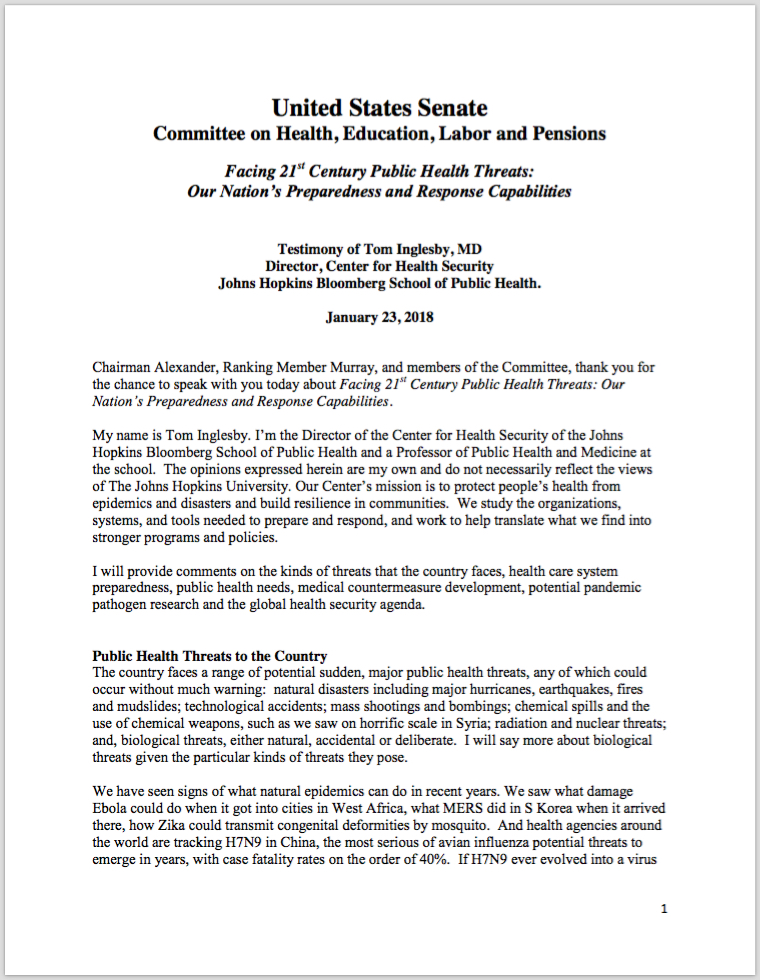Center for Health Security director testifies at US Senate committee hearing on Pandemic and All-Hazards Preparedness Act reauthorization
Center News


January 23, 2018 – At a US Senate committee hearing on the reauthorization of landmark public health preparedness legislation, Johns Hopkins Center for Health Security Director Tom Inglesby, MD, highlighted key initiatives that ought to be policy priorities for lawmakers when they consider how the United States can better prepare for and respond to a range of major public health threats.
Inglesby was one of four witnesses to testify at the Jan. 23 hearing on the Pandemic and All-Hazards Preparedness Act (PAHPA), which passed in 2006 and was reauthorized and expanded in 2013. A second reauthorization is necessary because many of the act’s provisions are set to expire in September 2018. PAHPA’s purpose is to strengthen the nation’s public health and medical preparedness and response capabilities for emergencies, whether deliberate, accidental, or natural.
In his testimony, Inglesby said the United States must strengthen health care system preparedness, strengthen the ability of the public health system to detect and respond to threats, move ahead in medical countermeasure development, recognize threats that could emerge from biological research, and fund the Global Health Security Agenda.
“Improving our nation’s preparedness and response capacity is a daunting and complex endeavor,” Inglesby told members of the US Senate Committee on Health, Education, Labor, and Pensions. “But I am confident it is an achievable goal if we focus our efforts on these initiatives.”
He was joined on the panel by John J. Dreyzehner, MD, MPH, FACOEM, commissioner of the Tennessee Department of Health; Brent MacGregor, senior vice president of commercial operations at Seqirus; and Steven Krug, MD, FAAP, head of pediatric emergency medicine at Ann & Robert H. Lurie Children’s Hospital Of Chicago.
There was bipartisan appreciation and support among Senators in attendance.
“Since the last reauthorization, our nation’s emergency preparedness and response framework has been tested by the emergence of pandemic flu, multiple natural disasters, the Ebola outbreak, and the Zika virus,” said Sen. Richard Burr, who chaired the hearing. “The lessons learned in those events come from individuals like those sitting before us today, and their efforts to protect and to save lives.”
A recorded broadcast of the hearing is available at help.senate.gov.
Read the written testimony here.
About the Johns Hopkins Center for Health Security:
The Johns Hopkins Center for Health Security works to protect people from epidemics and disasters and build resilient communities through innovative scholarship, engagement, and research that strengthens the organizations, systems, policies, and programs essential to preventing and responding to public health crises. The Center is part of the Johns Hopkins Bloomberg School of Public Health and is located in Baltimore, MD.
